Cheetah Outreach, Somerset West
Cheetah Outreach is an education and community-based programme created to raise awareness of the plight of the cheetah.
Learn more about these incredible cats from a distance, or get up close and personal and even step inside an enclosure.
In addition to partnering with ambassador cats to inform the public about the problems the cheetah faces, the outreach programme:
- Continues to be involved in environmental education, offering curriculum-linked school presentations and resources as well as workshops and fellowships for teachers.
- Breeds Turkish Anatolian Shepherd dogs and places them on South African farms to guard livestock in an effort to reduce conflict between farmers and predators.
- Hand-rears cubs from the Ann van Dyk Cheetah Centre and raises them to be ambassadors for the species.
- Partners with other cheetah conservation organizations worldwide.
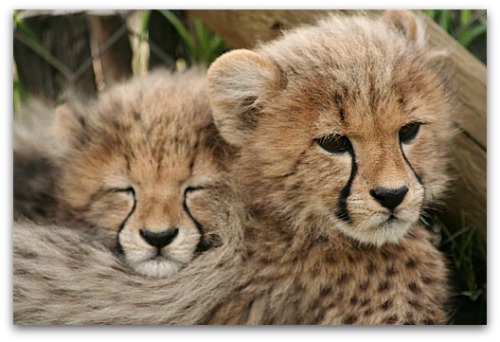
The Plight of the Cheetah
The fastest land animal in the world is losing its most important race: the race for survival. At the turn of the century an estimated 100,000 cheetah lived in 44 countries throughout Africa and Asia.
Today, there are just 7,500 cheetahs left. South Africa is home to fewer than 1,000 of these majestic cats.
The primary reason for the cheetah’s decline is shrinking range due to habitat loss throughout Africa. Drastic increases in human population and proliferation of domestic animals has led to loss of habitat and prey, and increasing conflict with man.
Because it is low in the predator hierarchy, the cheetah faces competition from other predators and does not do well in parks and reserves with large lion and hyena populations. Competition with other large predators takes the form of direct predation on cubs, occasional killing of adults, and loss of kills. As a result, more cheetahs live outside protected areas where they come into conflict with farmers.
Being a daytime hunter, the cheetah is an easier target than other predators for harassment by tourists. In many parks and reserves, tourist vehicles routinely disrupt cheetah hunts.
Cheetah Outreach page.
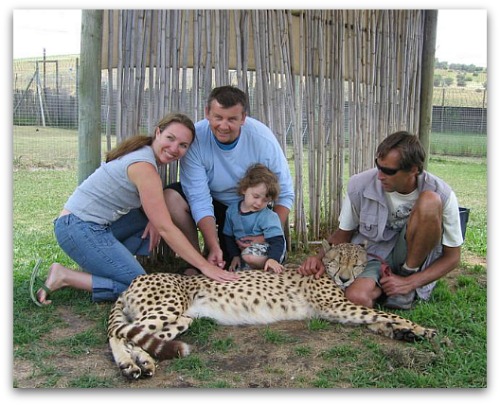
Anatolian Shepherd Guarding Dog Project
As a result of the success of Cheetah Conservation Fund’s livestock guarding dog programme in Namibia, a trial programme was launched by De Wildt's Wild Cheetah Management Project (WCMP) and Cheetah Outreach in 2005 to introduce the Anatolian shepherd to serve farmers in South Africa.
To give this trial the best possible chance of success, farmers were carefully selected and given an information booklet outlining introduction and management strategies for their dogs.
To promote a good working diet and veterinary care, costs are sponsored by the programme for the first year. The rest is in the hands of the farmer who must invest interest during the initial critical period. This will often be the deciding factor that ensures success in the rearing of a productive guarding dog.
Since the programme was implemented, Anatolian guard dogs have been placed on farms in cheetah range in Limpopo, North West and Northern Cape Provinces, where they have reduced livestock losses from 95 to 100%. Though mostly used to guard sheep and goats, for the first time in southern Africa, some dogs have been used to guard cattle.
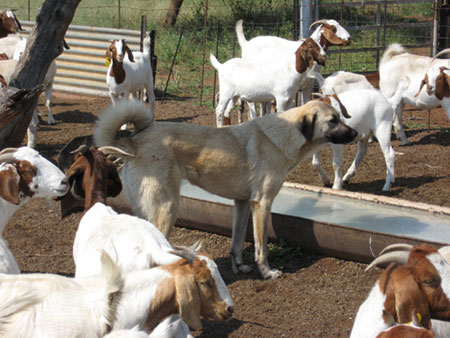
Useful Information:
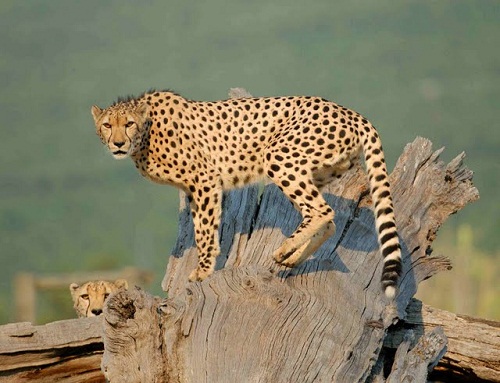
Hours:
10h00 to 17h00 every day.
Personal encounter with the cheetah's 11h00 to 13h00, and 14h00 to 17h00. Cat willing.
Tel: +27 (0)21 851 6850
Address:
Paardevlei, De Beers Avenue, Somerset West
GPS, S34.090199 E18.814001
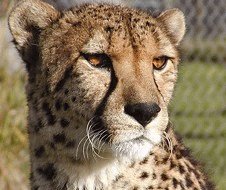 |
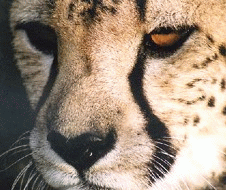 |
Return from Cheetah Outreach page to Homepage.
Hotel Accommodation Deals: Check Availability
Leave a comment?
comments powered by DisqusBuy tickets online for City Sightseeing Tours.

Bookings
Useful Information
Movies:
Radio Stations (streaming):
- Bok Radio
- KFM
- KFM 80's
- RSG





New! Comments
Have your say about what you just read! Do you want to add something or let me know of some changes?Leave me a comment in the box below.